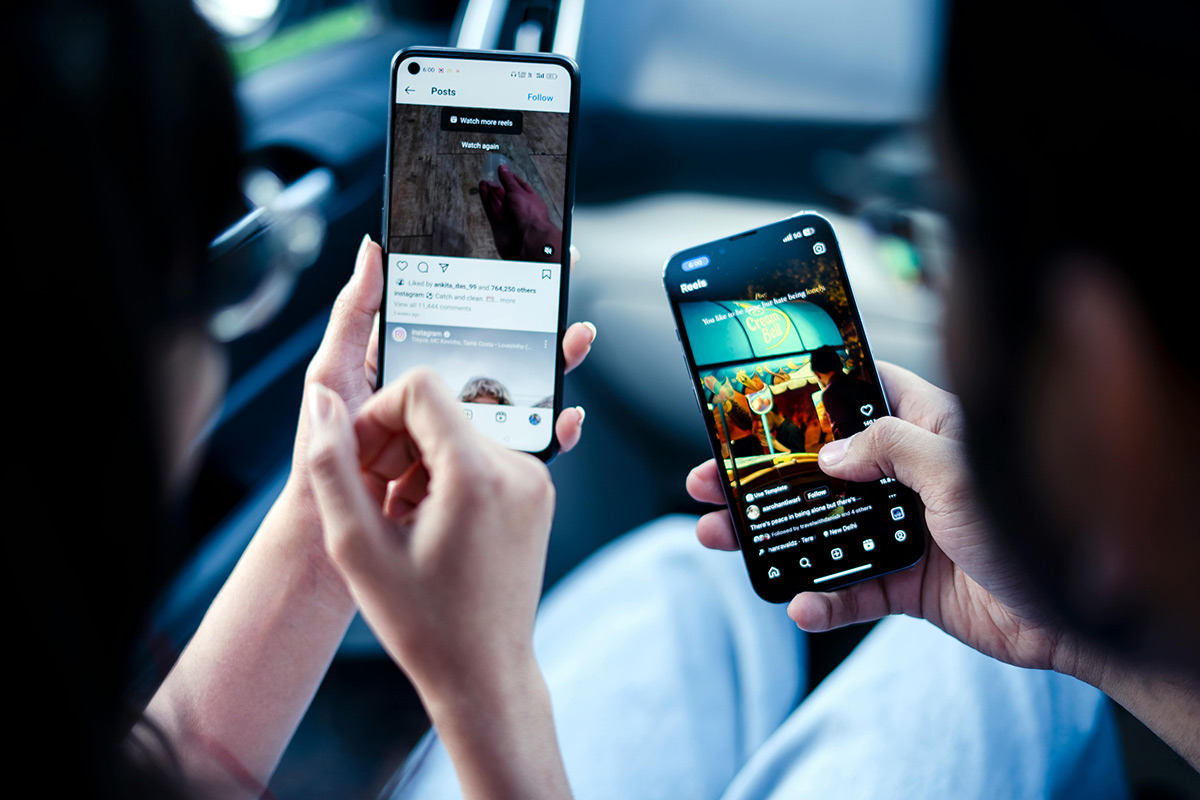 | « Back to article | Print this article |
Passive consumption of social media content, like mindlessly scrolling through feeds without engaging with them, has been linked to increased envy and decreased life satisfaction, cautions Dr Maithili Tambe, CEO of The Academy School, Pune.

Social media is now an indispensable part of our lives and we all rely on the online world for many of our needs.
Although these platforms provide a unique and intricate web of connection and creativity, they also have the power to jeopardise one's mental well-being.
Social media can offer a sense of community and support, allow people to take comfort in the fact that they are not alone and connect us with like-minded souls.
It can inspire us to make healthier choices and be grateful for our lives while empathising with others.
At the same time, it can arouse feelings of inadequacy, loneliness and anxiety as we compare our behind-the-scenes lives with the carefully curated perfection that are posted.
Are you addicted to social media?
One of the clear signs that you might be addicted to social media is having an uncontrollable impulse to check notifications or scroll through feeds when you have more important responsibilities to take care of or things to do.
If you find yourself checking Facebook between meals or even while driving, it's time to re-evaluate your habits.
A second indicator could be the number of hours spent online.
If you often lose hours scrolling through feeds or watching videos, it is a sign that your use of social media has become unhealthy and toxic.
Another huge red flag is if you get anxious or irritable when you have difficulty accessing your social media accounts.
If your self-esteem is affected with the amount of likes, comments and followers you get, it can become toxic for your mind.
If social media is getting in the way of your relationships, or interfering with work or a hobby that brings you joy, then you need to rethink your online habits.
Anxiety, comparison, loneliness
Anxiety is another adverse effect of social media bingeing.
Being bombarded with notifications and feeling the need to stay connected all the time can leave you feeling overwhelmed.
This may result in people remaining in a heightened state of alertness as they constantly scroll through feeds, afraid of missing the latest news or updates from friends; all of this can eventually get exhausting.
Also remember that people are, too often, presented with an airbrushed image of someone's life -- like a perfectly staged picture, an enviable vacation and/or seemingly flawless relationships.
Comparing yourself to someone else in these ways can only lead to feelings of inadequacy if you presume you are supposed to measure up to them. The longer you spend on these platforms, the worse those feelings can become. This can create a vicious cycle of self-doubt and misery.
Social media can also cause loneliness because it primarily focuses on superficial connections. Also, wishing for a connection without formulating a bond with someone is one of the leading causes of loneliness.
This rift can compound our pre-existing mental health issues, making it tempting for us to withdraw even more into the digital realm, searching for comfort only to end up being labelled as a loner.
Understanding the science
Over the years, numerous studies have found a worrying link between too much social media time and increased anxiety and depression as well as poor self-esteem.
As we scroll through curated images and idealised lifestyles for hours a day, we may not realise just how harmful this incessant comparison can become to how we perceive our own lives.
This can add to feelings of incompetence and despair.
We are already seeing an increase in incidents of cyberbullying and negative feedback flooding social media.
Excessive and uncontrolled consumption of social media has had a significant effect on mental health.
For example, passive consumption of social media content like mindlessly scrolling through feeds without engaging has been linked to increased envy and decreased life satisfaction while active participation like commenting, sharing and liking friends' posts tends to boost a sense of fulfilment.
Strategies for mindful social media use
You need to set a limit when it comes to social media consumption.
Pick a specific time of the day to scroll through feeds and engage with posts. This aids in eliminating mindless browsing and reduces the overwhelming feeling of constantly always being connected.
Curate your feed thoughtfully. Follow only those accounts that uplift and inspire you and those that promote positivity, creativity and mental well-being.
Hit that unfollow button on those who bring negative emotions or who contribute to comparison and self-doubt.
Exercise mindfulness when engaging on social media.
Before scrolling, take a moment to assess your mood and intentions. This will allow you to be more critical about how you use social media platforms.
If you notice that your mood dips after a scroll marathon, take a break, step outside or connect with friends offline.
Prioritise real-life connections over virtual ones. Though social media is a tool for communication, it's important to nurture face-to-face relationships as well.
These mindful social media strategies will allow you to maintain the balance we all seek between our online and offline worlds.
Stop letting social media run wild over your self-worth. Learn how to maintain a level of control so that you transform your online experience into something positive, rewarding and enjoyable.
![]()